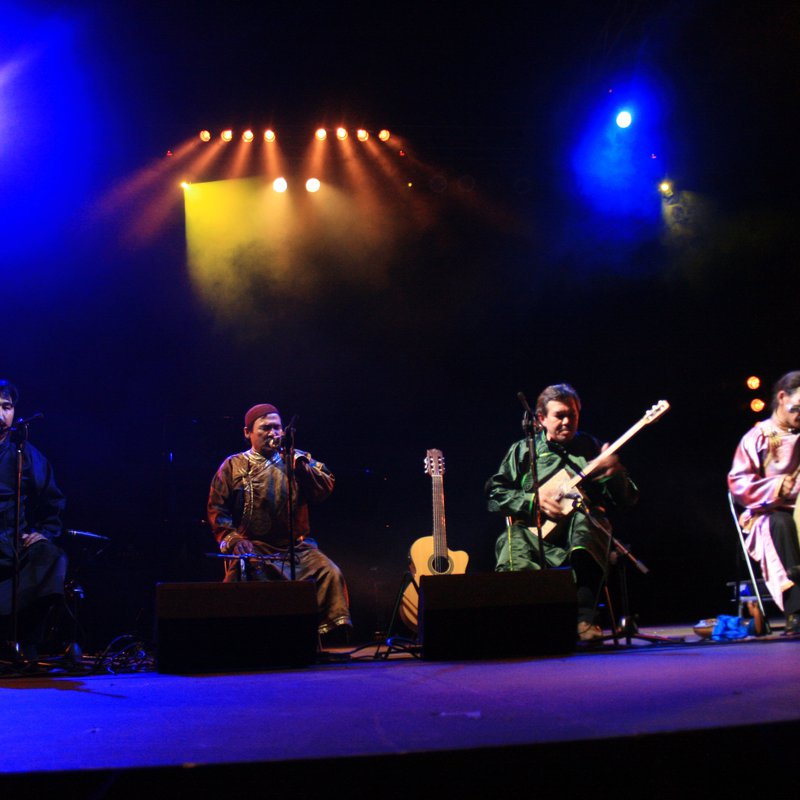
Huun Huur Tu
Upcoming events
In 1992, Huun-Huur-Tu was founded by Sasha Bapa, his brother, Sayan, and two other musicians, Kaigal-ool Khovalyg and Albert Kuvezin. Ever since they have tried to focus on the performance of “old and forgotten songs”, as Sasha put it. Sasha, Sayan, and Kaigal-ool were refugees of one of the large state-managed song and dance ensembles that became fixed institutions of the public cultural life during the Soviet era. For decades these ensembles with their glitzy performances of folk music or pseudo folk music offered the only possibility for young musicians to play indigenous music for a living. Throughout the privatization of the music business in the former Soviet Union, many musicians decided to abandon these state ensembles and form their own groups. The musical results have decidedly been mixed.
In an interview for the American producer and critic, Ted Levin, Sasha Bapa explained the meaning of ‘Huun-Huur-Tu’ as the vertical separation of light rays that one often see out on the grasslands just after sunrise or just before sunset. It seems to be a metaphor for the band’s key element– throat-singing that “consists of producing a deep tone in such a way as to create one or two substantial harmonics. The first harmonic is a humming sound in the mid-range, and on top is a loud whistling tone that the singer raises and lowers to create a weird sort of melody by varying the embouchure” (Jon Sobel, Blogcritics Magazine). In this light and through their heavy touring, Huur-Tu can truly be seen as a leading force in popularizing throat singing or khöömei the past decades.
However rooted in Tuvan traditions, it would be a mistake to attribute Huun-Huur-Tu to a folk ensemble. For the first time, Huun-Huur-Tu laced in the pop charts with a remix of the title “Eki Attar”. It became Greece’s No.1 hit in the summer of 2002. The ensemble then went on to release a studio project entitled ‘Spirits of Tuva’ with Djs of various nationalities. They have performed with Ry Cooder, Frank Zappa, The Chieftains, Johnny “Guitar” Watson, Kronos Quartet and L. Shankar among the others. The ensemble’s collaborations do also include other members of JARO: Hazmat Modine, The Bulgarian Voices– Angelite, and Moscow Art Trio.